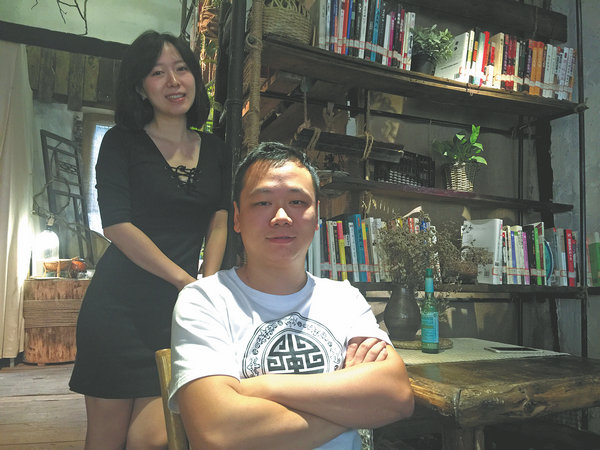 |
|
Architect Xie Peisong, and his cousin Xie Ranran, at their teahouse and studio, Xiao Guan. [Photo by Tan Yingzi/China Daily]
|
Xiahao Old Street, which winds from the river port up to the foot of Nanshan Mountain, dates back to the Qiaolong Period (1736-95) of the Qing Dynasty (1644-1911). Thanks to a once-booming port businesses, Xiahao became one of the major business areas in Chongqing. Now it has the only remains of stilted wooden houses in the city.
In 1890 when Chongqing was forced to open its ports to foreign businesses, Xiahao witnessed the establishment there of many international companies.
During World War II, Chongqing was the wartime capital of China. Wuhan University was relocated to Xiahao. After the People's Republic of China was founded in 1949, more changed. The country's central bank, the People's Bank of China, used to operate in this area.
In the 1990s, when the port businesses in the south bank declined and then eventually closed down, Xiahao was left behind as many young people moved to the new urban areas.
Now only about 300 families still live in the block; most are senior citizens who refuse to leave their community.
